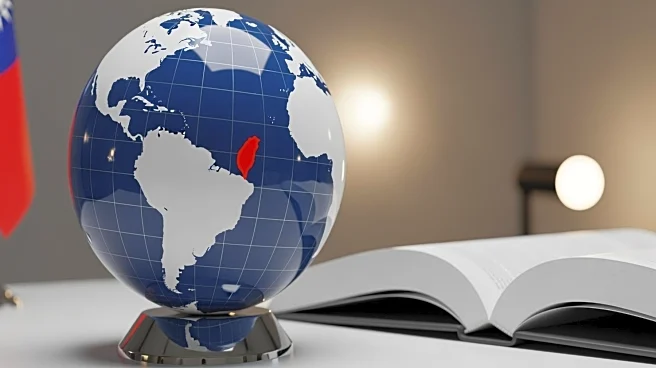What's Happening?
Time magazine published op-eds and an article focusing on the potential for conflict between Taiwan and China, with one opinion piece labeling Taiwan's President Lai Ching-te as 'reckless.' The article,
authored by Lyle Silverstein from the Defense Priorities think tank, suggests that US leaders should rein in Lai, citing his assertion of Taiwan's sovereignty and alleged misdirection of defense efforts. Taiwan's Ministry of Foreign Affairs responded, stating that the article does not accurately reflect the situation, emphasizing Lai's commitment to peace and dialogue. The ministry's press release aims to counter the narrative presented by Time, highlighting Taiwan's efforts to maintain regional stability.
Why It's Important?
The portrayal of President Lai as 'reckless' by Time magazine has significant implications for Taiwan's international relations and its perception in global media. The article's criticism could influence US policy decisions regarding Taiwan, potentially affecting cross-strait relations and regional security dynamics. Taiwan's response underscores the importance of maintaining a narrative that supports its sovereignty and peaceful intentions. The situation highlights the role of media in shaping international perceptions and the potential impact on diplomatic relations between Taiwan, the US, and China.
What's Next?
Taiwan's Ministry of Foreign Affairs will likely continue to engage in diplomatic efforts to counter negative portrayals in international media and reinforce its commitment to peace and dialogue. The government may seek to strengthen its communication strategy to ensure accurate representation of its policies and actions. The response to Time magazine's article could lead to further discussions on Taiwan's role in regional security and its relationship with the US. Stakeholders, including political leaders and think tanks, may continue to debate Taiwan's strategic position and its implications for US foreign policy.
Beyond the Headlines
The criticism of President Lai by Time magazine reflects broader geopolitical tensions in the Taiwan Strait and the complexities of Taiwan's relationship with China and the US. The situation highlights the challenges faced by Taiwan in asserting its sovereignty while navigating international pressures. The media's portrayal of Taiwan's leadership can influence public opinion and diplomatic relations, emphasizing the need for effective communication strategies. The long-term implications of such narratives could affect Taiwan's ability to maintain regional stability and its position in global politics.









